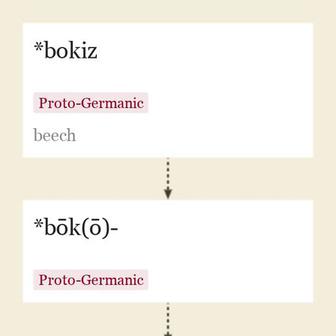bookstore n.
also book-store, "
Entries linking to bookstore

Middle English bok, from Old English boc "
Latin and Sanskrit also have words for "
The sense gradually narrowed by early Middle English to "
The use of books or written charters was introduced in Anglo-Saxon times by the ecclesiastics, as affording more permanent and satisfactory evidence of a grant or conveyance of land than the symbolical or actual delivery of possession before witnesses, which was the method then in vogue. [Century Dictionary]
From c. 1200 as "
c. 1300, "
The word store is of larger signification than the word shop. It not only comprehends all that is embraced in the word shop, when that word is used to designate a place in which goods or merchandise are sold, but more, a place of deposit, a store house. In common parlance the two words have a distinct meaning. We speak of shops as places in which mechanics pursue their trades, as a carpenter's shop a blacksmith's shop a shoemaker's shop. While, if we refer to a place where goods and merchandise are bought and sold, whether by wholesale or retail, we speak of it as a store. [C.J. Brickell, opinion in Sparrenberger v. The State of Alabama, December term, 1875]
Stores "
updated on July 09, 2017